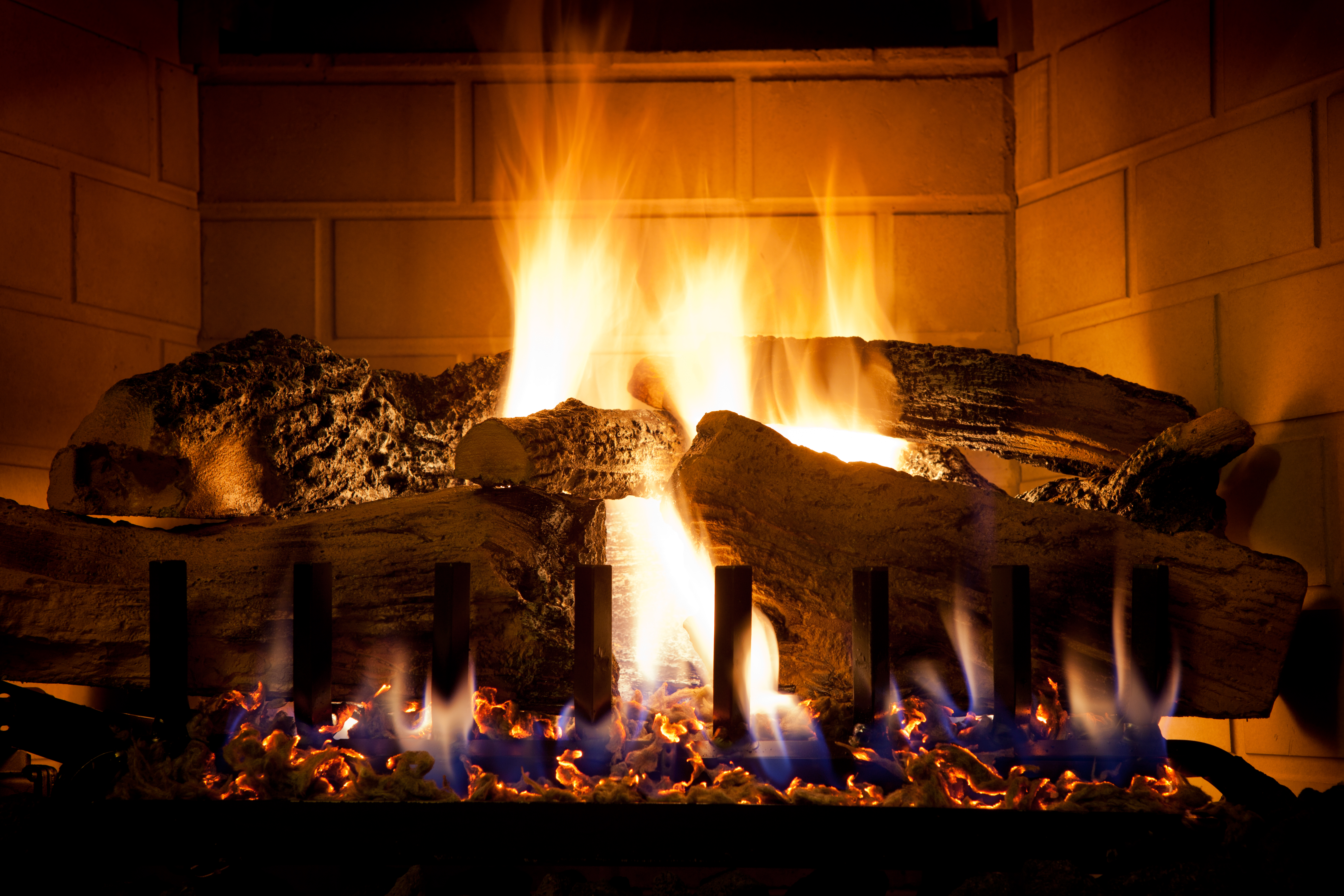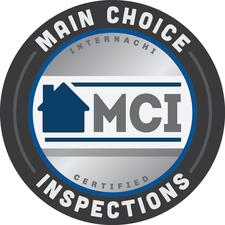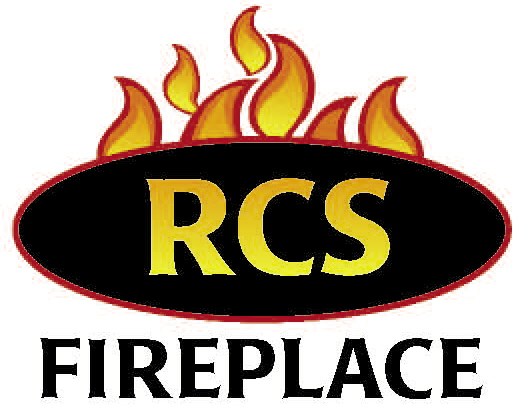
Get matched with top gas log pros in Strong, ME
Enter your ZIP and get matched with up to 5 pros
Need a pro for your gas log service project in Strong, ME?
Verified Reviews for Gas Log Service pros in Strong, ME
*The Angi rating for Gas Log Service companies in Strong, ME is a rating based on verified reviews from our community of homeowners who have used these pros to meet their Gas Log Service needs.
*The HomeAdvisor rating for Gas Log Service companies in Strong, ME is a rating based on verified reviews from our community of homeowners who have used these pros to meet their Gas Log Service needs.
Last update on December 10, 2025
Find Gas log pros in Strong

Chimneys R Us, LLC
Chimneys R Us, LLC
We pride our company on reliability, great communication, integrity and quality work. We are experts in our trade and will do our best to keep you as educated as we can on your particular task or project. We look forward to earning your business!
"I called for a free estimate, Justin came promtly and inspected the chimey. He showed me pictures of the problems and spelled out all the options. I explained to him that my cellar has floode due the problems and was anxious to get the repairs done. Justin quoted a price that was fair and much lower then any other estimates. To my surprise he said that he could do the job that day. He kept sending me pictures as the work progressed so I knew exactlywhat he was doing. He was professional and honest about what needed to be done. I was more then pleased with him and the company. I highly recommend .Chimneys are us."
Andrea R on March 2024
We pride our company on reliability, great communication, integrity and quality work. We are experts in our trade and will do our best to keep you as educated as we can on your particular task or project. We look forward to earning your business!
"I called for a free estimate, Justin came promtly and inspected the chimey. He showed me pictures of the problems and spelled out all the options. I explained to him that my cellar has floode due the problems and was anxious to get the repairs done. Justin quoted a price that was fair and much lower then any other estimates. To my surprise he said that he could do the job that day. He kept sending me pictures as the work progressed so I knew exactlywhat he was doing. He was professional and honest about what needed to be done. I was more then pleased with him and the company. I highly recommend .Chimneys are us."
Andrea R on March 2024

Shamrock Maintenance Corp.
Shamrock Maintenance Corp.
Serving the Tri-State Area, Shamrock Chimney will provide you with a dedicated approach to ensure your chimney is kept clean and safe. Our team provides chimney solutions for every problem, protecting homes from dangers of leaking chimneys and flues. Call us today to schedule your next appointment.
"We had a great experience with Shamrock. My husband is an architect and pretty much knew what needed to be done to remove a wood burning stove from our fireplace and restore it to a working fireplace before anyone arrived to give us a quote. We had several contractors come by and try to tack on extra unnecessary add ons using scare tactics. Gary from Shamrock came and not only was he honest about what needed to be done he also assessed that we needed some repair work done to our chimney which my husband already knew had to be done. We were very pleased with the removal of the wood burning stove , the chimney repair and his promptness and professionalism. Honesty goes a long way especially when you are unaware of what the clients knowledge of the situation is. I would highly recommend and ask for Gary. "
Mary B on August 2025
Serving the Tri-State Area, Shamrock Chimney will provide you with a dedicated approach to ensure your chimney is kept clean and safe. Our team provides chimney solutions for every problem, protecting homes from dangers of leaking chimneys and flues. Call us today to schedule your next appointment.
"We had a great experience with Shamrock. My husband is an architect and pretty much knew what needed to be done to remove a wood burning stove from our fireplace and restore it to a working fireplace before anyone arrived to give us a quote. We had several contractors come by and try to tack on extra unnecessary add ons using scare tactics. Gary from Shamrock came and not only was he honest about what needed to be done he also assessed that we needed some repair work done to our chimney which my husband already knew had to be done. We were very pleased with the removal of the wood burning stove , the chimney repair and his promptness and professionalism. Honesty goes a long way especially when you are unaware of what the clients knowledge of the situation is. I would highly recommend and ask for Gary. "
Mary B on August 2025

Hall Over Construction
Hall Over Construction
At Hall Over Construction, we take great pride in our experience, expertise, quality and customer service that we provide to meet the consumer's needs. It is our mission to provide excellent workmanship and complete customer satisfaction from start to completion of a project. In order to understand the needs and expectations of our customers, we take great care to work and communicate with every customer in a professional manner. Our reputation is based on service, safety and quality, regardless of how large or small the job.
At Hall Over Construction, we take great pride in our experience, expertise, quality and customer service that we provide to meet the consumer's needs. It is our mission to provide excellent workmanship and complete customer satisfaction from start to completion of a project. In order to understand the needs and expectations of our customers, we take great care to work and communicate with every customer in a professional manner. Our reputation is based on service, safety and quality, regardless of how large or small the job.

AppliancePartsPros.com
AppliancePartsPros.com
Since 1999, we've helped millions of do-it-yourselfers save money and fix their broken appliances quickly by providing quality appliance parts and free repair advice. We are only an online appliance parts retailer that offers a 365 day warranty and fast shipping. We also offer technical advice and diagnosis totally free 6 days a week. If you are interested in repairing your own appliance, please call us at 1-877-477-7278 or click live chat on our web site. We will help diagnose the problem and provide you with all the necessary information for the repair free of charge. It's better with the Pros!™ Avoid costly service calls - visit us at http://www.appliancepartspros.com
"Beware of shipping issues with this company. Ordered an ice maker installation kit on 10/10/25. Shipping was due no later than 10/20 according to company and FedEx tracking. FedEx tracking showed the package at their facility for 8 days without moving beginning on 10/15. Called FedEx 3 times. Each time they said they cannot find package and I have to contact shipper. Shipper has to make a claim, they will not mark it as lost. Called Appliance Parts Pros twice. Each time they say FedEx has to mark package lost before they will do anything. They also state they have to wait 14 days from them before doing anything because of their contract with FedEx. I don't care about their contract, I want what was ordered and paid for. Just going in circles with them and FedEX. If they shipped after 14 days it would be 22 days from that point, 32 days from the date of order if they shipped it that day. There was a deadline for installing this part before tenants arrive. They did not care, would not m"
Ron R on October 2025
Since 1999, we've helped millions of do-it-yourselfers save money and fix their broken appliances quickly by providing quality appliance parts and free repair advice. We are only an online appliance parts retailer that offers a 365 day warranty and fast shipping. We also offer technical advice and diagnosis totally free 6 days a week. If you are interested in repairing your own appliance, please call us at 1-877-477-7278 or click live chat on our web site. We will help diagnose the problem and provide you with all the necessary information for the repair free of charge. It's better with the Pros!™ Avoid costly service calls - visit us at http://www.appliancepartspros.com
"Beware of shipping issues with this company. Ordered an ice maker installation kit on 10/10/25. Shipping was due no later than 10/20 according to company and FedEx tracking. FedEx tracking showed the package at their facility for 8 days without moving beginning on 10/15. Called FedEx 3 times. Each time they said they cannot find package and I have to contact shipper. Shipper has to make a claim, they will not mark it as lost. Called Appliance Parts Pros twice. Each time they say FedEx has to mark package lost before they will do anything. They also state they have to wait 14 days from them before doing anything because of their contract with FedEx. I don't care about their contract, I want what was ordered and paid for. Just going in circles with them and FedEX. If they shipped after 14 days it would be 22 days from that point, 32 days from the date of order if they shipped it that day. There was a deadline for installing this part before tenants arrive. They did not care, would not m"
Ron R on October 2025
Super Sweep Chimney Sweep Services
Super Sweep Chimney Sweep Services
Fully Owner Operated.A partnership, 30yrs. Servicing Seacoast. Extremely competitive rates.
"I’m very impressed with the service and knowledge of Super Sweep. They came out on-time and gave me an honest assessment of my chimney and provided me with sound recommendations. They did only what was needed , not what they could have done to drive up the cost. Over the years I’ve lowered my expectations when it comes to customer service because of past experiences. It’s refreshing to have a local company that’s prompt, professional and honest. Six stars. C.M. Madbury, NH"
Chris M on October 2018
Fully Owner Operated.A partnership, 30yrs. Servicing Seacoast. Extremely competitive rates.
"I’m very impressed with the service and knowledge of Super Sweep. They came out on-time and gave me an honest assessment of my chimney and provided me with sound recommendations. They did only what was needed , not what they could have done to drive up the cost. Over the years I’ve lowered my expectations when it comes to customer service because of past experiences. It’s refreshing to have a local company that’s prompt, professional and honest. Six stars. C.M. Madbury, NH"
Chris M on October 2018
The Chimney Works
The Chimney Works
In business since 1980. Fully licensed and insured. Lining and relining of chimneys, caps, waterproofing and inspections. See my web site www.mainechimneylining.com
In business since 1980. Fully licensed and insured. Lining and relining of chimneys, caps, waterproofing and inspections. See my web site www.mainechimneylining.com

DON'S CHIMNEY CARE & STOVE SHOP
DON'S CHIMNEY CARE & STOVE SHOP
We are a full service chimney maintenance contractor as well as a retailer of the country's top brands of pellet, wood and gas stoves, fireplaces and inserts. Our staff consists of 4 full time employees and 2 part time employees. We accept Visa, Mastercard and Discover as well as good old-fashioned cash/check. We do not offer financing, however, layaway plans are available. Random in-house promotions are available as well as scheduled manufacturer promotions. Please see website for details.
We are a full service chimney maintenance contractor as well as a retailer of the country's top brands of pellet, wood and gas stoves, fireplaces and inserts. Our staff consists of 4 full time employees and 2 part time employees. We accept Visa, Mastercard and Discover as well as good old-fashioned cash/check. We do not offer financing, however, layaway plans are available. Random in-house promotions are available as well as scheduled manufacturer promotions. Please see website for details.
contact for info
Rocky's Stove Shoppe
Rocky's Stove Shoppe
Additional contact name - Barbara Gaslin.
Additional contact name - Barbara Gaslin.
The Chimney Man
The Chimney Man
Chimney lining & masonry repair for over 25 years. Supaflu dealer.
Chimney lining & masonry repair for over 25 years. Supaflu dealer.
The homeowners guide to home care is here
From average costs to expert advice, get all the answers you need to get your job done.

Wondering about the cost to tarp a roof after a large storm or before a major roof renovation? We'll break it down by size, style, and scenario.

The cost of replacing a flat roof is much lower than an angled one. Learn about the factors that can affect flat roof replacement costs and ways to save on a quality replacement.

The cost to install vinyl soffit on your home depends on several factors, including the soffit length, condition, and the working height.

Most roofing professionals are hardworking and ethical, but there are a few bad apples to watch out for. Learn how to avoid the 12 most common roofing scams.

An attic without proper ventilation can cause a number of roofing problems, inside and out. Here’s how you can tell if a poorly ventilated attic is wrecking your roof.

Dormer additions are both stylish and practical. Check out how to increase your attic's living space while boosting your home's curb appeal.
- Phillips, ME Gas log pros
- New Portland, ME Gas log pros
- Kingfield, ME Gas log pros
- North Anson, ME Gas log pros
- Anson, ME Gas log pros
- Madison, ME Gas log pros
- Solon, ME Gas log pros
- Norridgewock, ME Gas log pros
- Bingham, ME Gas log pros
- Skowhegan, ME Gas log pros
- Cornville, ME Gas log pros
- Saint Albans, ME Gas log pros
- Canaan, ME Gas log pros
- Fairfield, ME Gas log pros
- Electrical in Strong
- Plumbing in Strong
- Cleaning in Strong
- Roofing in Strong
- Fencing in Strong
- Home Builders in Strong
- Driveways in Strong
- Deck Maintenance in Strong
- Flooring in Strong
- Gas Grill Repair in Strong
- Lawn And Yard Work in Strong
- Roof Ice And Snow Removal in Strong
- Windows in Strong
- Painting in Strong
- Roofing in Strong
- Plumbing in Strong
- Electrical in Strong
- Tree Service in Strong
- Kitchen And Bath Remodeling in Strong
- Driveways in Strong
- Septic Tank in Strong
- Cleaning in Strong
- Siding in Strong
- Landscaping in Strong
- Lawn And Yard Work in Strong
- Exterior Painting in Strong
- Flooring in Strong
- Excavating in Strong
- Fencing in Strong
- Pressure Washing in Strong
- 🌱 "Mow a small front yard"
- 🛠 "Fix a leaking pipe under the sink"
- 🏠 "Repair shingles on an asphalt roof"



